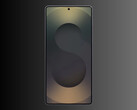Smartphone SoCs have a come long way, and have now reached a point where raw performance and benchmarks are no longer a bragging right. Almost every modern smartphone is more than capable of running the vast majority of apps without running into any issues, offering an excellent user experience at almost any price point. That said, the thrill of pitting flagship chipsets against each other remains, portrayed by the real-world speed tests conducted by PhoneBuff.
In a recent episode, PhoneBuff revealed that the Samsung S25 Ultra, powered by the Snapdragon 8 Elite for Galaxy SoC, managed to defeat the A18 Pro-powered iPhone 16 Pro Max. This marks an interesting turn of events, since the iPhones have reigned supreme in such tests for several generations. Not only did the S25 Ultra manage to outpace the iPhone 16 Pro Max, it did so with a relatively massive margin. As MacRumors notes, in CPU-heavy tasks such as image editing and video exports, the S25 Ultra shined bright, and the same goes for games as well, which opened just as fast, or faster on the S25 Ultra.
Ultimately, the Samsung S25 Ultra outperformed the iPhone 16 Pro Max by a whopping 15 seconds, which is quite a shocking gap because last year, the iPhone 15 Pro Max managed to defeat the S24 Ultra by just around a second. In the second round, which aims to test how well the smartphones' memory management systems function, the iPhone 16 Pro Max with 8 GB of memory did squeeze out a win against the S25 Ultra with 12 GB of memory, although by a razor-thin sub-1-second margin.
Clearly, the Snapdragon 8 Elite for Galaxy chip, paired with a 40% larger cooling chamber, has propelled the Samsung Galaxy S25 Ultra (currently $1,249 on Amazon) far ahead of the iPhone 16 Pro Max. Of course, as we noted earlier, both the flagships are plenty fast for almost any use case, but it sure is interesting to see Apple fall behind not only in multi-core CPU benchmarks, but also in real-world performance tests. It is unclear at this point whether this year's A19 Pro SoC will regain the CPU performance crown, but Qualcomm certainly isn't about to ease off the gas, which will likely make Apple fight back harder than it has ever had to.















